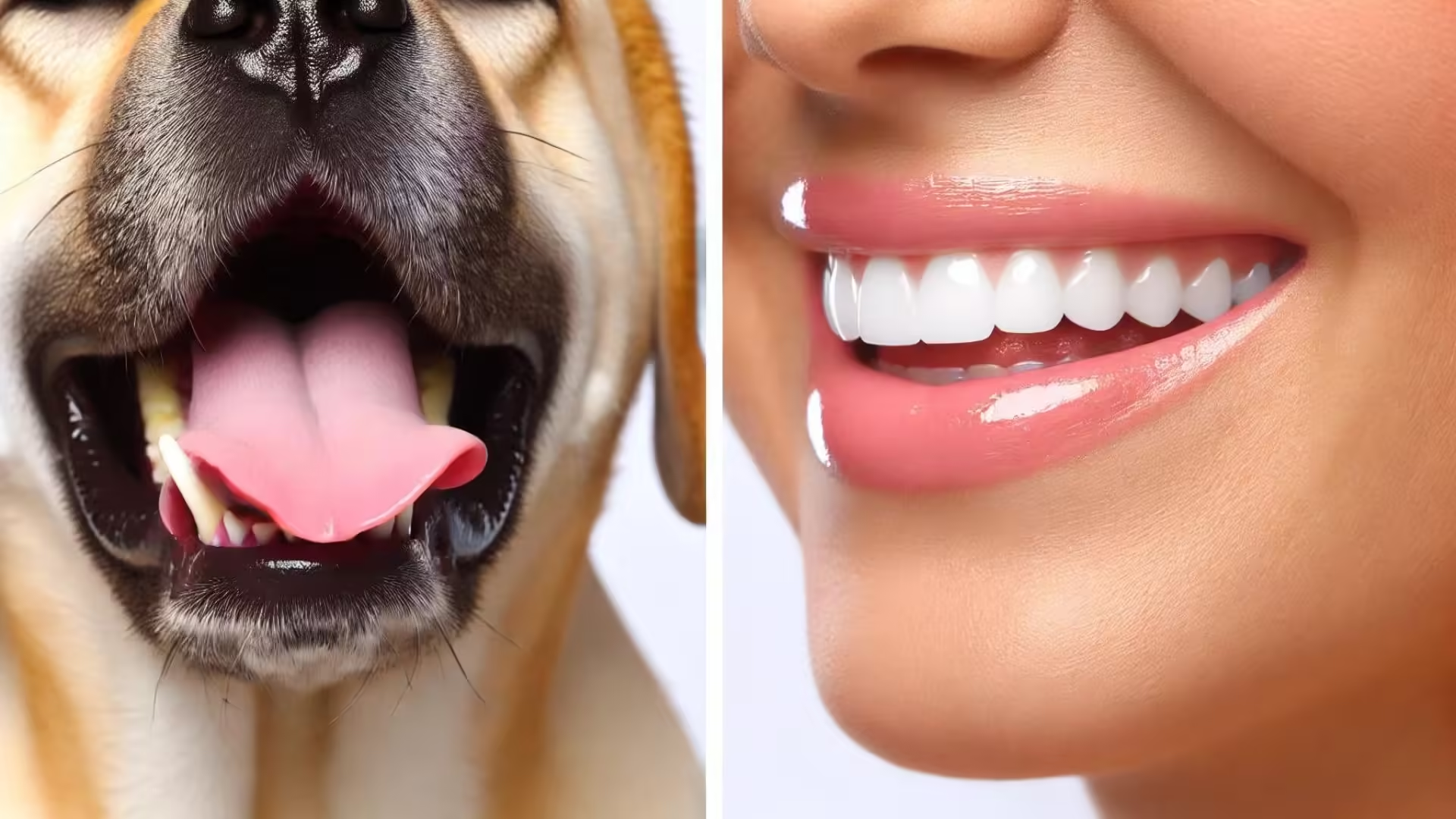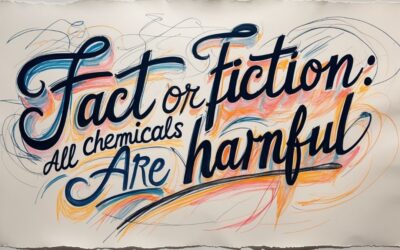The Gist
Is a Dog’s Mouth Really Cleaner Than a Human’s?
The idea that a dog’s mouth is cleaner than a human’s has been floating around for years, making many of us feel more comfortable when our pups shower us with slobbery kisses. But where did this claim come from, and more importantly, is there any truth to it?
Let’s start by looking at what we mean when we say “cleaner.” Are we talking about fewer germs? Less harmful bacteria? The truth is, dogs and humans have very different oral ecosystems. Both species have a wide variety of bacteria in their mouths, but they’re not the same types of bacteria. So, while a dog’s mouth may not carry the same germs as a human’s, it doesn’t necessarily mean it’s cleaner.
Understanding the Bacteria
Humans and dogs both have a thriving community of bacteria living in their mouths, and that’s completely normal. In fact, there are hundreds of species of bacteria that call the human mouth home, and the same goes for our canine companions. The key difference is that the bacteria in a human mouth are adapted to us, and the bacteria in a dog’s mouth are adapted to them. So, comparing the two directly isn’t as straightforward as it might seem.
For example, dogs tend to have more bacteria that are specific to meat and raw food because of their carnivorous nature. Humans, on the other hand, have bacteria that are more related to the variety of foods we eat, especially sugars and starches. But here’s where it gets interesting: just because dogs and humans have different bacteria doesn’t mean one is necessarily “cleaner” than the other. They’re just… different.
Is Dog Saliva Antibacterial?
Another part of the myth stems from the belief that dog saliva has antibacterial properties, which makes their mouths “cleaner” than ours. While it’s true that dog saliva has some mild antibacterial properties, it’s not exactly a miracle cleaner. Yes, their saliva can help clean wounds (hence the common sight of dogs licking their cuts), but it’s not a substitute for proper medical care. In fact, dog saliva can also carry bacteria like Pasteurella and Capnocytophaga, which can cause infections in humans under certain conditions.
This is especially important to keep in mind when letting dogs lick your face or open wounds. While your dog’s mouth might not make you sick under normal circumstances, there’s always a risk, especially if your immune system is compromised or if you have cuts or abrasions.
What About Dental Hygiene?
Another factor to consider is dental hygiene. Humans brush their teeth daily (or at least, we should!), and we floss, use mouthwash, and visit the dentist regularly. Most dogs, however, don’t get the same level of oral care. Unless their teeth are brushed regularly or they chew on dental-friendly toys, plaque and bacteria can build up, leading to periodontal disease. So, while the bacteria in a dog’s mouth might be different from a human’s, their mouths aren’t necessarily cleaner—especially when dental hygiene is factored in.
Can You Get Sick from a Dog’s Mouth?
While the vast majority of bacteria in a dog’s mouth won’t make a healthy human sick, it’s still possible to catch certain infections or illnesses from your dog. Zoonotic diseases, or diseases that can spread from animals to humans, are rare but not impossible. For instance, bacteria like Salmonella or Campylobacter can sometimes be found in dog saliva, especially if your dog has been eating raw meat. That said, the risk is generally low for healthy individuals, but it’s something to be aware of if you have young children, elderly family members, or anyone with a weakened immune system in the house.
The Final Verdict: Clean, But Not Cleaner
So, is a dog’s mouth cleaner than a human’s? Not really. It’s more accurate to say that a dog’s mouth is different from a human’s. Both humans and dogs have their own sets of bacteria, and while dog saliva does have some mild antibacterial properties, it also carries germs that can potentially cause harm. So, if you’ve ever heard the claim that a dog’s mouth is cleaner than a human’s, you can now confidently say it’s not quite that simple.
The next time your dog greets you with an enthusiastic lick on the face, just remember: it’s probably not any cleaner than if a human did the same. But if you’re both healthy, there’s usually no harm in a little slobbery affection.
Now that you know the truth behind this common myth, take a moment to consider how oral hygiene affects both you and your dog. Are you keeping up with regular brushing for your pet? And when was your last visit to the dentist? Trusting myths can sometimes lead us astray, but staying informed helps us make better decisions for ourselves and our furry friends.
Let’s Talk
So, let’s talk about this whole idea of a dog’s mouth being cleaner than a human’s. It’s kind of funny how we latch onto these little myths, right? I mean, when you really think about it, does it even make sense? Dogs literally sniff, lick, and chew on just about everything, from garbage to their own paws, yet somehow their mouths are supposed to be cleaner? It’s one of those things that gets repeated so often that we just start believing it without question.
But here’s the thing—dogs’ mouths aren’t necessarily cleaner; they’re just different. And that makes sense because dogs and humans live very different lives. For starters, dogs don’t exactly have the same level of dental hygiene as we do. When was the last time you saw a dog flossing? And sure, some dogs get their teeth brushed, but let’s be real, most probably don’t enjoy it and might even avoid it as much as possible. Meanwhile, we’re out here brushing, flossing, rinsing with mouthwash, and making regular trips to the dentist. So, in terms of hygiene, we’re probably doing a bit better in that department.
But what’s interesting is that even though dogs have bacteria in their mouths that could be harmful to us, we still let them lick us, and for the most part, we don’t get sick. Why is that? Well, it’s because most of the bacteria in their mouths are just as harmless to us as our bacteria are to them. It’s not about being cleaner or dirtier—it’s about our bodies being adapted to handle different things. Kind of like how your dog can eat something off the floor without a problem, but if you did the same, you might not feel so great.
And here’s a fun thought: ever noticed how people feel completely fine with letting their dogs lick their faces, but the idea of sharing a drink with another person might gross them out? It’s funny how we draw these weird lines. Maybe it’s because we see our dogs as pure and innocent creatures, so we give them a free pass on cleanliness. But in reality, we probably wouldn’t feel the same way if we knew where their mouths had been moments earlier!
That being said, we shouldn’t just let our dogs go around licking open wounds or babies’ faces without thinking twice. There’s still a chance that bacteria could cause an issue, especially for people with weaker immune systems. So, a little slobber is usually harmless, but moderation is key, right?
And let’s talk about trust here. We trust our dogs implicitly, which is why we’re so comfortable with them being all up in our personal space, germs and all. But would we be so casual if we were constantly worrying about germs in the same way we do with other humans? Probably not. It’s interesting how that trust plays into how we perceive cleanliness. The truth is, no matter how much we love our furry friends, they aren’t magically immune to carrying germs. So maybe the next time your dog’s about to give you a big wet kiss, you’ll think about whether you want to return the favor!
Now here’s something to ponder: How much do you actually think about germs when it comes to your dog? Does the idea of them being “cleaner” than humans change how you feel about those slobbery kisses, or have you always known that myth wasn’t quite right? And how do you balance the love you have for your dog with the practical side of keeping things hygienic? It’s funny to think about how we draw those invisible lines.
Let’s Learn Vocabulary in Context
Let’s take a closer look at some of the key words and phrases we used in our conversation about dogs and cleanliness, because these terms pop up more often than you’d think, even beyond just talking about pets.
First up, we talked a lot about oral ecosystem. This is a pretty fancy way of saying the environment inside your mouth, where all kinds of bacteria live and interact. Whether we’re talking about humans or dogs, each of us has our own unique oral ecosystem. In real life, you might use this term when explaining why dental hygiene is so important. Like, “I need to brush my teeth regularly to keep my oral ecosystem healthy.” It’s a cool way of saying that your mouth is its own little world!
Then we brought up bacteria, which are microscopic organisms that live almost everywhere, including in your mouth. When we say dogs and humans have different bacteria in their mouths, it’s not necessarily a bad thing. Bacteria are part of everyday life, and not all of them are harmful. You could use this term when explaining why washing your hands or cleaning your dog’s toys is important: “I wash my hands often to get rid of any bad bacteria I might pick up throughout the day.”
Another interesting phrase is zoonotic diseases, which refers to illnesses that can be passed from animals to humans. In the context of dogs, these are the types of bacteria or viruses that might make people sick if they come into contact with their pet’s saliva or waste. It sounds technical, but you might hear it in conversations about pet care or public health. For instance, “Make sure to keep your dog’s vaccinations up to date to protect against zoonotic diseases.”
Let’s also talk about dental hygiene. This is all about taking care of your teeth and mouth to keep them clean and healthy. In the article, we discussed how humans tend to have better dental hygiene than dogs because we brush our teeth, floss, and visit the dentist. In daily life, you can say something like, “I’ve been really focusing on improving my dental hygiene by flossing every day.”
Lastly, we mentioned saliva. Dog saliva comes up a lot when people talk about whether a dog’s mouth is cleaner than a human’s. Saliva is the watery substance produced by glands in the mouth, and while it helps with digestion and keeping the mouth moist, it also carries bacteria. So, when you hear someone talking about how “dogs lick their wounds to heal,” you can respond with, “It’s the enzymes in their saliva that help, but you still need to be careful.”
Now that we’ve broken down these terms, let’s think about how they apply in your everyday life. Have you ever wondered how much bacteria you come into contact with daily, and how does knowing about zoonotic diseases change the way you interact with pets? And when it comes to dental hygiene, how often do you think about your own oral ecosystem? These terms might seem scientific, but they all relate to how we take care of ourselves and our pets.










0 Comments